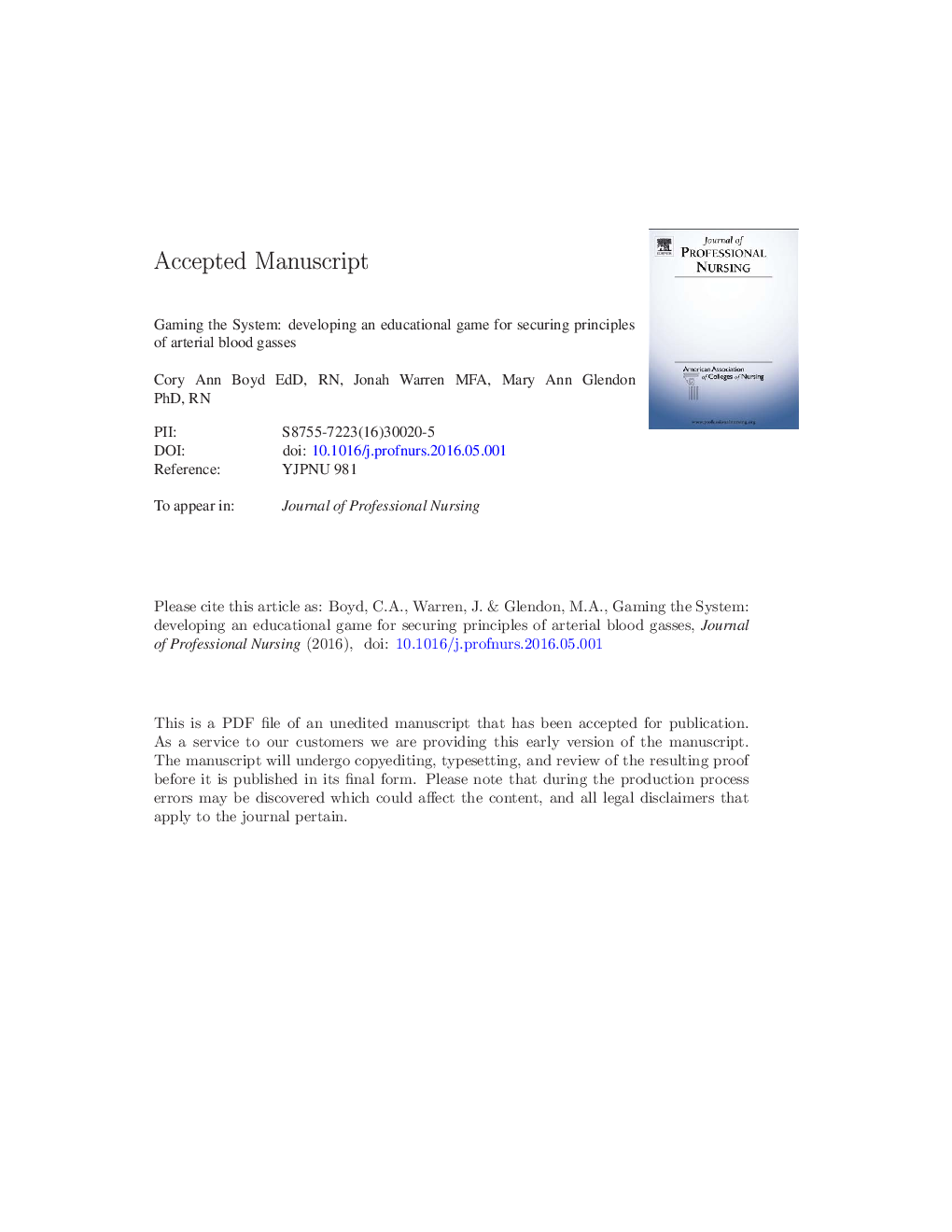| Article ID | Journal | Published Year | Pages | File Type |
|---|---|---|---|---|
| 5570489 | Journal of Professional Nursing | 2016 | 16 Pages |
Abstract
This article describes the development process for creating a digital educational mini game prototype designed to provide practice opportunities for learning fundamental principles of arterial blood gases. Mini games generally take less than an hour to play and focus on specific subject matter. An interdisciplinary team of faculty from two universities mentored student game developers to design a digital educational mini game prototype. Sixteen accelerated bachelor of science in nursing students collaborated with game development students and playtested the game prototype during the last semester of their senior year in nursing school. Playtesting is a form of feedback that supports an iterative design process that is critical to game development. A 10-question survey was coupled with group discussions addressing five broad themes of an archetypical digital educational mini game to yield feedback on game design, play, and content. Four rounds of playtesting and incorporating feedback supported the iterative process. Accelerated bachelor of science in nursing student playtester feedback suggests that the digital educational mini game prototype has potential for offering an engaging, playful game experience that will support securing the fundamental principles of arterial blood gases. Next steps are to test the digital educational mini game for teaching and learning effectiveness.
Related Topics
Health Sciences
Nursing and Health Professions
Nursing
Authors
Cory Ann EdD, RN, Jonah MFA, Mary Ann PhD, RN,
